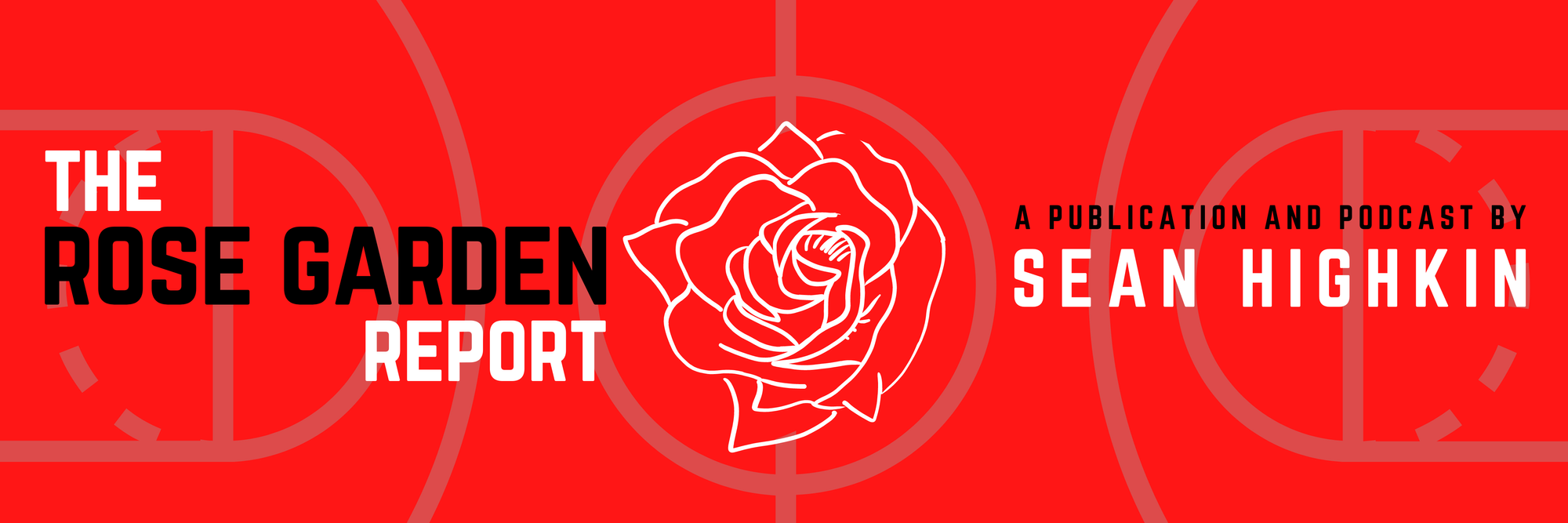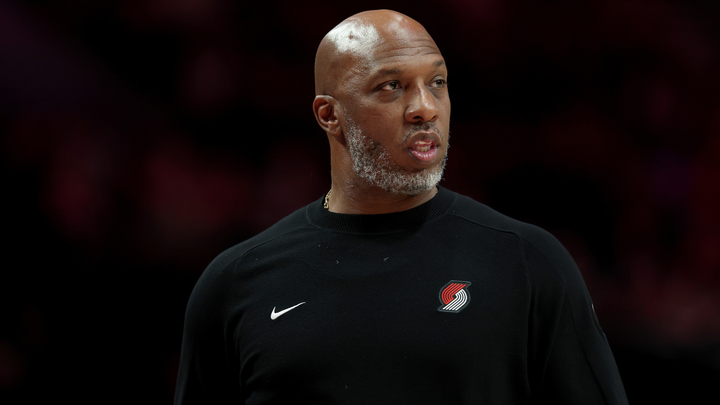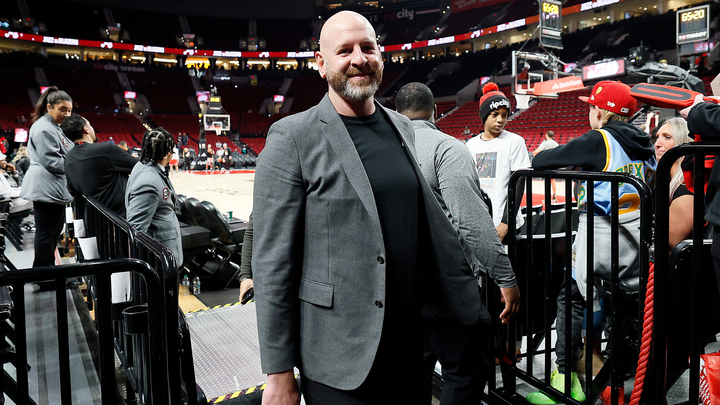How the Trail Blazers are Approaching the Trade Deadline
With less than a week to go until the Feb. 8 deadline, it's been a slow-developing market across the NBA. Here's where everything stands.

In the leadup to the Feb. 8 trade deadline, the market has been slow to develop across the NBA.
A few big deals have already been done, earlier than usual. Toronto finally committed to a teardown, sending O.G. Anunoby to New York and Pascal Siakam to Indiana. Miami sent Kyle Lowry’s expiring contract and a future first-round pick to Charlotte for Terry Rozier. A handful of teams have made smaller deals to move money around. But compared to last year, when out-of-nowhere blockbusters sent Kyrie Irving and Kevin Durant to new teams, this trade deadline figures to be relatively quiet. (Unless LeBron James gets traded. Nothing actually surprises me anymore.)
But the Trail Blazers have a few things up in the air that could be resolved in the next four days, or not.
Unlike last year, nothing is certain about what the Blazers’ trade-deadline plans are. Joe Cronin’s decision a year ago to completely punt on making upgrades and instead making two deals for young players and picks was a little surprising given that at the time, the franchise’s stated goal was still to build a contender around Damian Lillard. But one thing was obvious from very early on in the season: Josh Hart was going to be moved before the deadline. He was positionally redundant and coming up on free agency, and it wouldn’t have made sense for Portland to pay him in the neighborhood of the four-year, $80 million extension he signed with the Knicks after Portland traded him there.
Nobody on the Blazers’ current roster is nearly as much of a lock to be traded as Hart was at last deadline.
The most likely name to be on the move before the deadline remains Malcolm Brogdon, but that’s far from a sure thing. In recent days, rival executives have come away with the impression that the Blazers aren’t desperate to move him before the deadline and are comfortable waiting until this summer, when Brogdon is going into the final year of a contract that will pay him $22.5 million, to move him.
Since he came over from Boston in the Jrue Holiday trade on the eve of the start of training camp, the Blazers have valued Brogdon’s steadying presence in the backcourt as they’ve slow-played Scoot Henderson’s development in an up-and-down rookie season.
Brogdon recently told The Athletic that he’s happy in his current role. Not that that precludes the Blazers from trading him if they get an offer they think makes sense. But Cronin has been adamant, publicly and privately, since the start of the rebuild that he wants to keep veterans in the fold and not completely bottom out like Detroit and Washington have.
Taking Brogdon’s happiness in Portland a step further, my friend and fellow Substacker Marc Stein reported on Monday that Brogdon may even be pushing for an extension. Personally, I have a hard time seeing the Blazers’ front office going for that unless it’s at an extremely team-friendly number that makes him easier to move down the line. But the organization under Cronin has a good working relationship with Klutch Sports, the agency Brogdon hired near the beginning of the season. It’s tough to see how keeping Brogdon beyond this season lines up with the minutes that need to be divided between Henderson, Shaedon Sharpe and Anfernee Simons as the rebuild progresses. But it’s interesting that that messaging is out there, and can’t hurt his value if a team really wants him before the deadline.
Elsewhere, the Blazers, sources say, have been consistent in their messaging to other teams that they have no interest in moving Jerami Grant before the deadline. For his part, Grant told me in late January that he’s comfortable in Portland and isn’t looking for a trade.
Matisse Thybulle is another player whose name has come up regularly and would be of interest to contenders due to his defensive impact and very reasonable three-year, $33 million contract. Trading Thybulle has its own complications, given that he essentially has a no-trade clause this year. Because he signed an offer sheet with Dallas over the summer that the Blazers matched, he has to agree to any trade in the first year of his contract. He also cannot be traded to the Mavericks at all during the first year, because they were the team that signed him to the offer sheet.
The only team that has been publicly linked to Thybulle has been Milwaukee, in a report last month from Yahoo Sports’ Jake Fischer that touched on targets on the Bucks’ wish list. One wonders whether Thybulle would approve a trade to Milwaukee given that the coach the Bucks just hired midseason, Doc Rivers, coached Thybulle in Philadelphia and by all accounts did not trust or empower him much. On the other hand, the presence of Damian Lillard, a close friend of Thybulle and fellow client of Aaron Goodwin, may take precedence should that decision actually present itself.
From the Blazers’ end, Milwaukee’s trade assets are extremely limited after the two teams completed the blockbuster Lillard deal in September. For what it’s worth, rookie forward Andre Jackson Jr. is a player Portland brought in for a predraft workout in May and, positionally and skillwise, fits with the kind of prospect this front office has historically valued.
In recent weeks, Robert Williams III’s name has appeared in various reports despite undergoing season-ending knee surgery in November. The team he was most strongly linked to, Houston, has since traded for another center who’s out for the season in Memphis’ Steven Adams. It’s much more likely Williams is dealt this summer, when he’s completed his knee rehab, than in the next few days before the deadline.
My current understanding of the trade discussions the Blazers have had with other teams is that if they do move Brogdon or any of their other veterans, they’re more interested in getting back players that fit into their rebuilding timeline—and that they feel will stick around and complement their existing group—than they are in just stacking up future draft picks along with whatever salary filler is necessary to make the math work.
Going back to last deadline, out of the three young players they acquired at the deadline, Thybulle was the one they had pursued in the past and felt confident they’d want to keep and build with—and they did. Cam Reddish and Kevin Knox II were viewed as dart throws, former lottery picks who’d washed out on a few teams and it wouldn’t hurt to take a flier on in a lost season. Neither of them stuck.
Last year, once they entered tank mode, the Blazers were in a position to be able to give extended minutes to players like Knox and Reddish to see what they could do because the only two players who hadn’t been shut down that they actually viewed as a part of their future were rookies Shaedon Sharpe and Jabari Walker.
That isn’t the case this year. Besides those two, there are Portland’s six rookies—Henderson, Kris Murray, Rayan Rupert, Toumani Camara, Duop Reath and Ibou Badji—all of whom the organization values and views as players they want to build with beyond this season. That’s eight players already, plus Thybulle if he isn’t traded. Adding another player to that mix who is a fringe prospect with a less defined role, who may be playing for a contract, could be seen as too disruptive to the development of their own players they hope to see down the stretch.
One of the most oft-mentioned teams with interest in Brogdon is Orlando. Magic center Wendell Carter Jr., who turns 25 in April, is on a very cheap contract through 2026 and has been consistently productive when healthy, would qualify as a player it would make sense for Portland to bring in and add to the core they’re already building.
Unloading Brogdon to another interested team, the Knicks, for Evan Fournier’s expiring contract and a late first-round pick in a draft where they already have two, is less in line with what they’re currently looking to do. With Brogdon having one more year left on his contract, that kind of deal—salary filler and a middle-tier pick—will likely be there for them in the offseason if they want it.
If the market for a player like Brogdon isn’t to Portland’s liking this week, there’s a belief that this summer will be different for a few reasons.
For one thing, the 2024 draft class is considered by most analysts to be weaker than the 2025 and 2026 classes, and Portland already has two first-rounders in this draft—their own and Golden State’s unless it lands in the top four. A deal where the main piece coming back is yet another first-rounder in this draft may not meet the threshold of what they’re looking for.
After June’s draft, some of the teams that may want Brogdon will also see their Stepien restrictions on moving future draft picks reset, meaning those teams will have more future picks available to trade and could open up more offers.
And as the ultra-restrictive second-apron rules in the new CBA are phased in this summer, some of the higher-payroll teams, the ones that are competing for the playoffs and would want a reliable veteran point guard like Brogdon, may find a $22.5 million expiring contract exceedingly valuable as a way of shedding long-term money and could make it worth the Blazers’ while.
That doesn’t mean Brogdon won’t be traded before Thursday. If you’re asking me which player on the Blazers’ roster is most likely to be somewhere else after noon Pacific time that day, he is far and away the answer to that question—if they get an offer that makes sense. With Hart last year, there was urgency to get a deal done by the deadline so as not to lose him for nothing, and they were still able to get a first-round pick from the Knicks. With Brogdon being under contract for next season, they have the luxury of waiting if they don’t love any of the deals on the table.




Comments ()